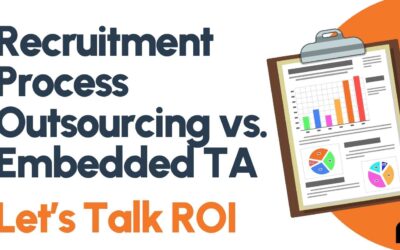Recruitment vs Talent Acquisition: Understanding the Key Differences
When it comes to hiring the right talent for your organisation, two terms often come into play: recruitment and talent acquisition.
While both processes involve finding and bringing in new employees. They are not interchangeable. In this blog post, we’ll delve into the differences between recruitment and talent acquisition. Our goal is helping you understand their unique roles within a company. Also to gain an understanding how they contribute to building a successful workforce.
Recruitment Specialists:
Recruitment specialists are professionals dedicated to filling immediate job vacancies within a company. Their focus is sourcing candidates, screening, conducting interviews, and coordinating the hiring process. A recruiters main goal is to fill open positions . Ensuring that the organisation maintains its operations and meet short- term staffing needs.
Recruiters work with hiring managers identifying skills and qualifications needed for a role. They post job advertisements on various platforms. Search for potential candidates in databases and job boards. and reach out to passive candidates. Recruiters are skilled at conducting interviews and assessing candidates’ for available positions.
Talent Acquisition Specialists:
Talent acquisition, takes a more strategic and long-term approach to hiring.
It focuses on building a pipeline of top-quality candidates. Candidates that align with the organization’s long-term goals, culture, & values. Talent acquisition specialists work alongside senior management and HR to develop hiring strategies.
Unlike recruitment, talent acquisition specialists are proactive in their approach. TA’s engage in employer branding to enhance the company’s reputation as an employer of choice. They develop relationships with potential candidates, even before a specific role becomes available. Building talent pools, ensures the organisation has qualified candidates available for future roles.
Talent acquisition specialists reach out to candidates through various channels. These can include:
- Social media
- Professional networking sites
- Industry events
- Referrals
Using a multi-faceted approach helps to identify the best talent available. They focus on attracting passive candidates who may not be searching for new opportunities. These candidates have the skills and experience for the roles
Key Differences between recruitment and talent acquisition
Recruitment
- Timeframe: Recruitment focuses on immediate hiring,
- Strategy: Recruitment is often a reactive process
- Focus: Recruitment emphasises filling specific positions
- Scope: Recruitment is typically managed by HR departments or dedicated recruitment teams
Talent acquisition
- Time Frame: Takes a long-term approach to talent management and workforce planning.
- Strategy: is proactive, centered around building relationships and pipelines.
- Focus: TA’s focus on attracting and nurturing talent for future roles.
- Scope: Talent acquisition involves collaboration between HR, senior management, and various other departments.
In summary, recruitment and talent acquisition play distinct roles in the hiring process. While recruitment fills immediate vacancies, talent acquisition takes a strategic approach to attract, engage, and nurture top-quality candidates for future positions.
Both processes are vital for building a skilled and successful workforce. Understanding their differences will help organisations develop effective talent acquisition strategies, and long-term hiring success.
Rent a Recruiter partners with businesses in IT, Engineering, Manufacturing, Construction, Finance, and Healthcare, providing embedded recruitment experts who deliver tailored talent acquisition solutions for seamless business growth.


